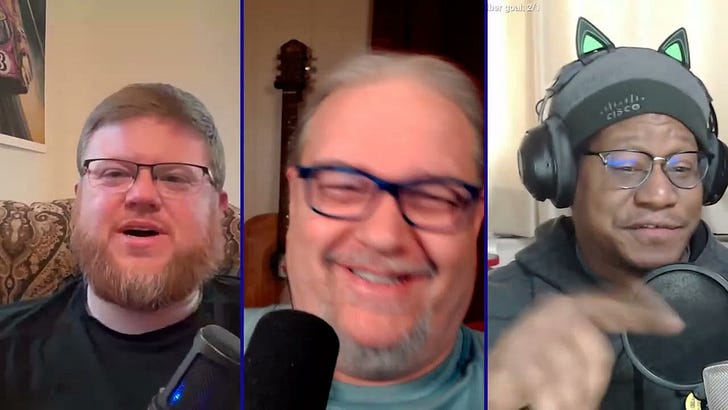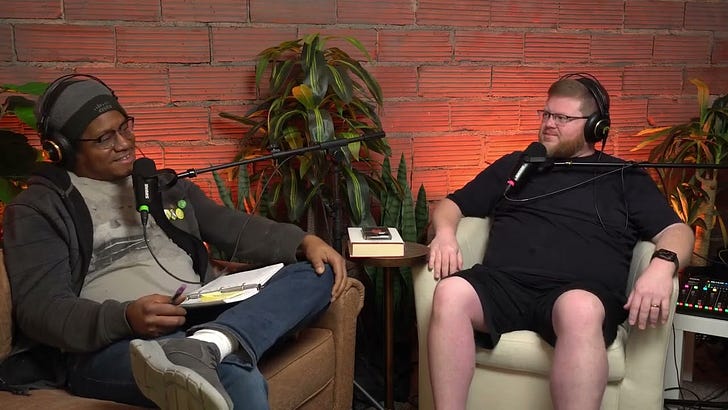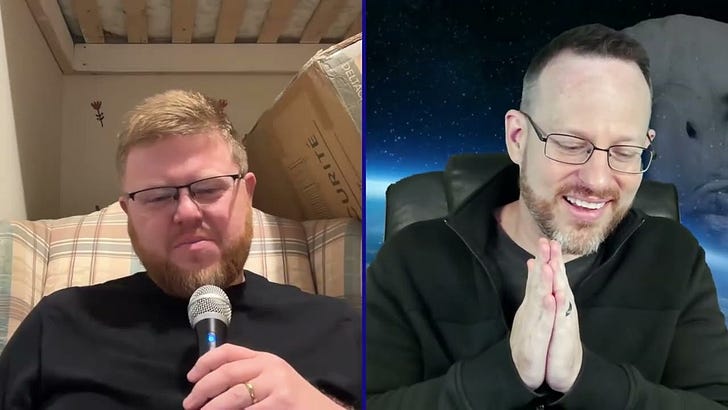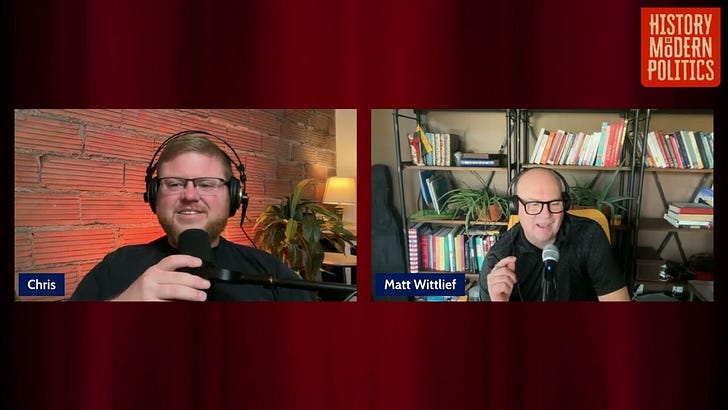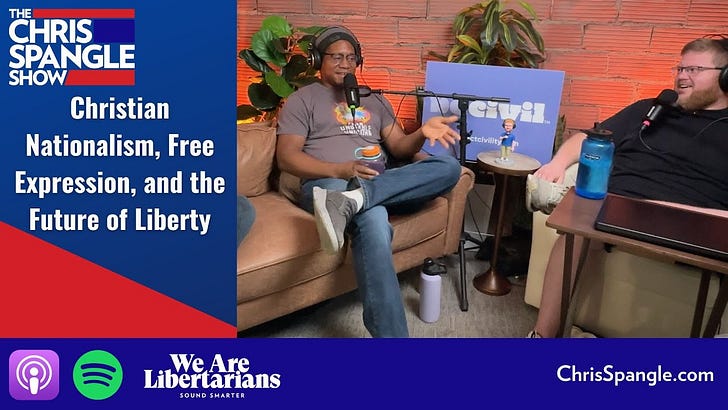I was honored to give the commencement address at a homeschool high school graduation. In this speech, I encouraged graduates to resist the pull of shallow success and instead pursue lives rooted in faith, service, and meaningful relationships. Drawing inspiration from Jane Addams and Abraham Kuyper, I highlighted how small, faithful choices—made consistently—can transform communities and leave a lasting legacy.
Text:
Good afternoon graduates, families, and friends—
Congratulations. This moment is no small thing. You’ve crossed a threshold into a world full of possibility—and noise. A world that promises you everything: infinite information, endless entertainment, and countless ways to define yourself.
But here’s the truth: your legacy won’t be built on what you consume or how clever your posts are. It won’t be your job title or the hobbies you love. It will be built on who you love, and who shows up when you’re carried to the river.
Let me explain what that means.
In the film Big Fish, Edward Bloom is a man who tells grand stories—of giants, witches, and improbable adventures. His son, Will, grows up frustrated by these exaggerations. He wants facts, not fables. But as Edward nears the end of his life, Will begins to see that while the details were embellished, the heart of those stories was real. They were rooted in people.
At the end of Edward’s life, all those characters—those whose lives he touched—gather to say goodbye. The truth wasn’t in the size of the stories. It was in the relationships they represented. Edward’s life mattered not because it was impressive, but because it was full of connection. And when he was carried to the river to be transformed into a Big Fish, he wasn’t alone.
I had a realization while watching this movie several years ago. I was going through a period where I felt overwhelmed by current events.
Can anyone relate to that?
The ending of the movie taught me a powerful lesson in shrinking our field of vision in order to serve our circle. Our sphere of influence is where God has called us to work.
It is the people around us. There is no doubt that the events taking place in China, Florida, or Washington DC are important, but are we called to shape those events?
I think we often are trying to find meaning in sharing our opinions about these world events, and we neglect the actual places and people God has called us to transform. No one in this room is guilter of this than I am. But this has left us more divided and lonelier than many of our parents and grandparents. Technology has certainly been a blessing to our generation, but it is also a deep distraction of the work of the Kingdom.
It is a great irony of our age that you are both the most connected generation in history—and the loneliest.
I spent a fair amount of time researching loneliness over the last couple of years, and let me give you one statistic. 50% of Americans have three or fewer close friends. In 1990, that numbers was 25%. In every metric, Americans are facing a loneliness crisis and the country needs leaders in solving it.
I say this as someone that has spent a career in media: The world will tempt you to build a platform. But Jesus calls you to build a table. One where people sit down, break bread, are seen, and are loved.
Let me introduce you to someone who built a table: Jane Addams.
Born into wealth and comfort in 1860s Illinois, Jane was brilliant and ambitious woman. Her father John Adams was a personal friend of Lincoln, a mill owner, and banker. When he passed away in her youth, she was left with the equivalent of a million dollar inheritance. So she could have coasted.
But she didn’t use her privilege to escape the world’s pain—she walked straight into it. In 1889, after visiting London’s settlement houses, she returned to Chicago and founded Hull House: a community center in a poor immigrant neighborhood.
Settlement houses were a new idea at the time—places planted in struggling communities where reformers didn’t just offer services, but shared life.
They provided things like education, healthcare, and job training—but more importantly, they were built on proximity and presence. They said: We’re here with you—not above you.
At a time when most women could only be teachers by trade, she made the Christian countercultural choice to use her wealth to move in next door to people that most people in her class avoided.
It wasn’t glamorous. It didn’t make headlines every day. But Hull House became a refuge—offering education, art, medicine, childcare, and more.
Jane didn’t helicopter in with solutions. She moved in, became a neighbor, listened, and stayed.
Her presence reshaped an entire era. Hull House became a model for over 400 settlement houses across America. She helped pioneer the field of social work, fought to end child labor, and advocated for safe working conditions, public sanitation, and education reform.
She co-founded the ACLU to defend civil liberties and, in 1931, became the first American woman to win the Nobel Peace Prize for her tireless commitment to peace and justice.
Jane Addams didn’t just serve the poor and immigrants—she dignified them. She believed that loving your neighbor meant not just meeting needs, but changing the systems that created those needs in the first place.
It is easy to listen back to someone’s legacy and be intimidated, especially when they began their life with a million dollars. But we have the power of perspective to look on her past and see the culmination of hundreds of little decisions made every day.
Your calling, like Jane Addams’s, isn’t far-off or abstract. It starts right where you are. It starts with a decision to be present—to engage the world in front of you instead of drifting through it or escaping from it.
One of the people who best lived that kind of calling was a man named Abraham Kuyper.
Kuyper wore many hats: pastor, theologian, journalist, and eventually, Prime Minister of the Netherlands. But what made him remarkable wasn’t his résumé—it was his conviction that faith should shape everything.
He looked at the world—not just the church pews or prayer closets—and said, “That belongs to God too.”
He once wrote, “There is not a square inch in the whole domain of our human existence over which Christ, who is Sovereign over all, does not cry: ‘Mine!’”
In other words: your whole life matters. Not just your spiritual life. Your work matters. Your friendships matter. Your vote matters. Your calling isn’t something you stumble into—it’s something you build, one square inch at a time.
I find in our day and age, especially when we are younger, it is common to think that life is something that is happening to us. This is a decidedly secular view of our existence that robs us of the power of the Gospel to transform our lives and communities. Kuyper believed something quite the opposite.
Kuyper was intentional about moving those beliefs into action. He founded the Free University of Amsterdam so students could think Christianly about every field—not just theology, but law, journalism, science, and economics.
He started a Christian newspaper, believing the public square needed voices rooted in truth and compassion. He launched a political party not to seek control, but to serve—especially the working class and the poor. And he ran for office to prove that faith and public life are not enemies—they belong together.
Kuyper didn’t do this to impose his beliefs. He believed in pluralism—the idea that convictions could coexist in a free society. His vision of public life wasn’t about domination; it was about building a community where principled people could disagree and still seek the common good. When Christ is King, we don’t coerce—we build with hope.
He didn’t retreat from culture—he engaged it with the confidence to win it over through hundreds of thousands of Gospel-powered decisions made across society in every area. He believed that when Christians step into their vocations with humility and conviction, the world begins to look a little more like God’s Kingdom.
Kuyper emphasized that faith isn’t confined to private spirituality. It expresses itself through concrete action—at work, at home, in our relationships and that loving your neighbor isn’t theoretical; it’s the daily choice to walk across the street, help the forgotten, and build lasting institutions of compassion and care. Those daily choices can eventually build into something special.
Both Addams and Kuyper resisted conformity and embraced transformation. They call us to be countercultural—not through loud protests, but through quiet, consistent actions of grace and truth.
Both figures remind us that institutions matter. Jane Addams built Hull House not for personal fame but because her community desperately needed it. Kuyper founded schools, newspapers, and churches because he understood that meaningful, lasting change comes from nurturing strong, compassionate institutions.
What is an institution? It’s simply a group of people working together toward a shared purpose. A school exists to cultivate minds. A church to nurture souls. A business solves problems through profit. A nonprofit solves problems through compassion. A government upholds justice and order. And most importantly, a family exists to nurture individuals, pass down values, and love each other through life.
You, too, are called not to withdraw from society but to actively build one of these institutions. Invest your lives in creating communities where love, truth, and mercy flourish.
When your story is complete, it won’t be your follower count or your accomplishments that define you. It will be the lives you touched, the people you loved, and those who stood by your side. Were you able to take those small actions and then amplify them into lasting institutions for the good of your community?
Graduates, the world awaits your unique contributions. It is noisy and often chaotic, and you are not called to shout louder.
You’re called to be present, to serve, and to then transform the world around you because of it. Like our Lord, His influence on the 12 around him echoed throughout a town, then a region, and then throughout history because he was working from a place of Love.
So I ask again: Who will carry you to the river?
If you don’t yet know, start looking. Take a few risks. Have the conversation that scares you. Invite someone to lunch or go for a walk. Join a group that shares your values—or start one. Make friendship a core value of your life.
As we stand on the edge of artificial intelligence that will bring about change at a pace we literally cannot yet comprehend, relationships will be more important than ever. The most important investment you can make in your future is by grounding yourself with healthy relationships.
Find the people in your life who echo that famous C.S. Lewis quote: “Friendship is born at the moment when one person says to another, ‘What! You too? I thought I was the only one.’”
But you have to choose it first.
As Stephen Covey writes in The 7 Habits of Highly Effective People, “Begin with the end in mind.” Every habit is formed twice: once in your imagination, and once in the real world.
The lives of Jane Addams and Abraham Kuyper weren’t defined by grand gestures. They were built through daily choices - small, faithful decisions made again and again that were then put into action. That’s how real change happens inside of us, our families, and beyond.
You don’t need to have everything figured out today. I can assure you at 41, I am very far from knowing much, and even further from living up to what I spoke about today. It's always been two steps forward and one step back, which sometimes causes me to get discouraged. But when I look back on the course of my life, I still moved forward.
Just start where you are. Take chances. Do the next right thing. And over time, you’ll look back and see that those small decisions built something meaningful—something that mattered. Thank you.






